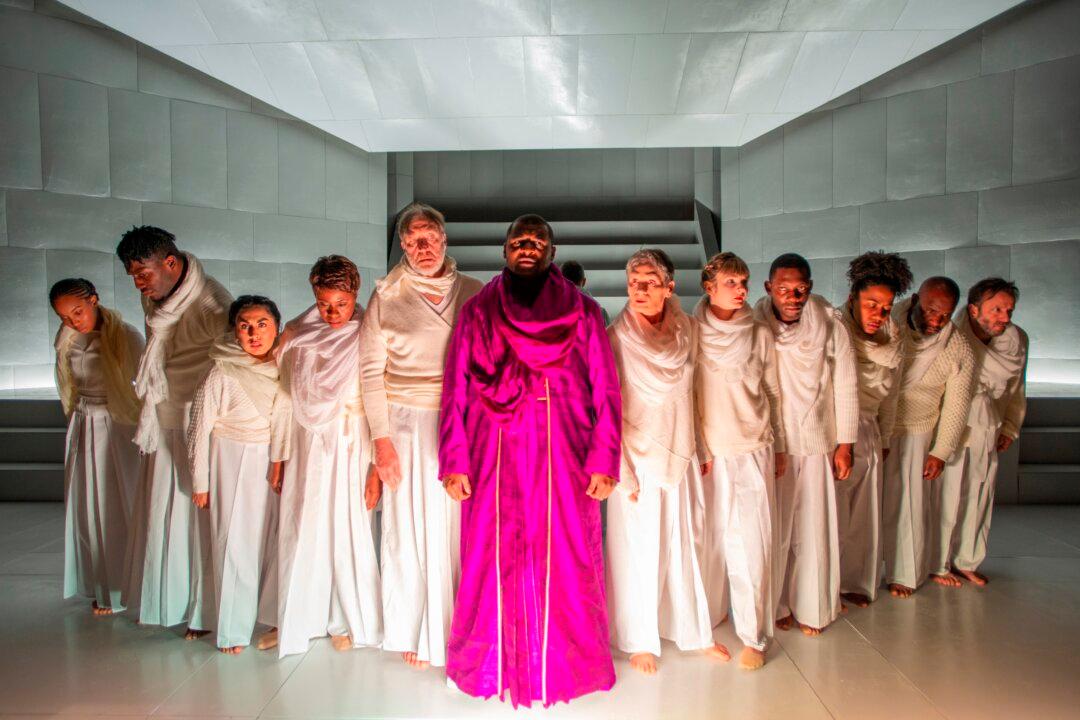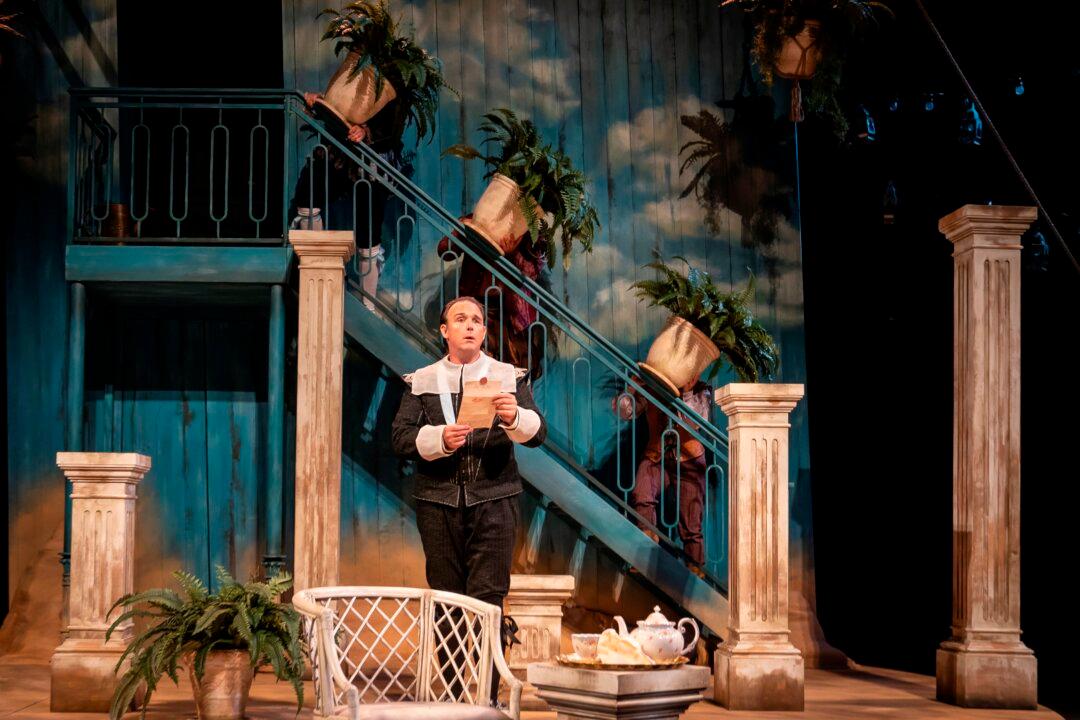CHICAGO—Christopher M. Walsh’s adaptation of “The Count of Monte Cristo,” now playing at the Lifeline Theatre, could not be in better hands than those of director Paul S. Holmquist. Their joint effort looks squarely at the paths that revenge may take and leaves the audience clear as to which path they'd prefer.
Walsh’s adaptation starts near the end of the Count of Monte Cristo’s tale in order to focus on his role as the avenging angel. We meet the massively wealthy and mysterious Count (Chris Hainsworth) when the other denizens of Paris do, and we, like they, try to piece together who he is.
Only through brief flashbacks do we learn the tale of innocent Edmond Dantès, torn from his beloved on his wedding day, condemned to 14 years in prison by the villainy of four men protecting and promoting their own interests. For greed, for lust, for ambition, and for self-protection, for these sins, Edmond Dantès is condemned to a dank cell, but they are not his crimes; they are those of his enemies.
Caderousse (Don Bender) knew that the accusations against Dantès were false, but to protect himself did nothing. Danglars (John Ferrick), who wanted the position of ship captain, which Dantès had just secured, let greed prompt him to accuse Dantès of treason.
Fernand’s (James Anthony Zoccoli) passion for Mercedes, Dantès’s betrothed, led him to deliver the false charges; and Villefort (Robert Kauzlaric), the King’s prosecutor, condemned Dantès in order to hide the fact that his own father was the traitor. Villefort’s ambition would be thwarted if his father were exposed.
Also through flashbacks, we learn of Dantès’s tutelage in prison under Abbe Faria (Don Bender), his deliverance from prison, and his reinvention of himself as the Count.
Now the Count has tracked down his four enemies, but he will not take revenge himself. Learning of their past secrets and sins, he takes on the role of Providence, an avenging angel who commits no wrongdoing other than the deceit of his false identity.
Instead he has gathered to help him those who also have their own grudges against his malefactors. They represent the paths Dantès might have taken: the lovely Haydee (Susaan Jamshidi), a deposed princess sold as slave, but who now turns her revenge over to the court system and settles for peace of mind; and villainous Benedetto (Jesse Manson), who takes the blood of the innocent as well as the guilty in payment for his abandonment as an infant.
In his unstained revenge, the Count chooses to remove himself from the human sphere and stand above to calculate and judge. Ultimately, this choice leaves him with nothing human left to treasure, and so ultimately the audience is reminded that vengeance, however scrupulously enacted, never pays.






